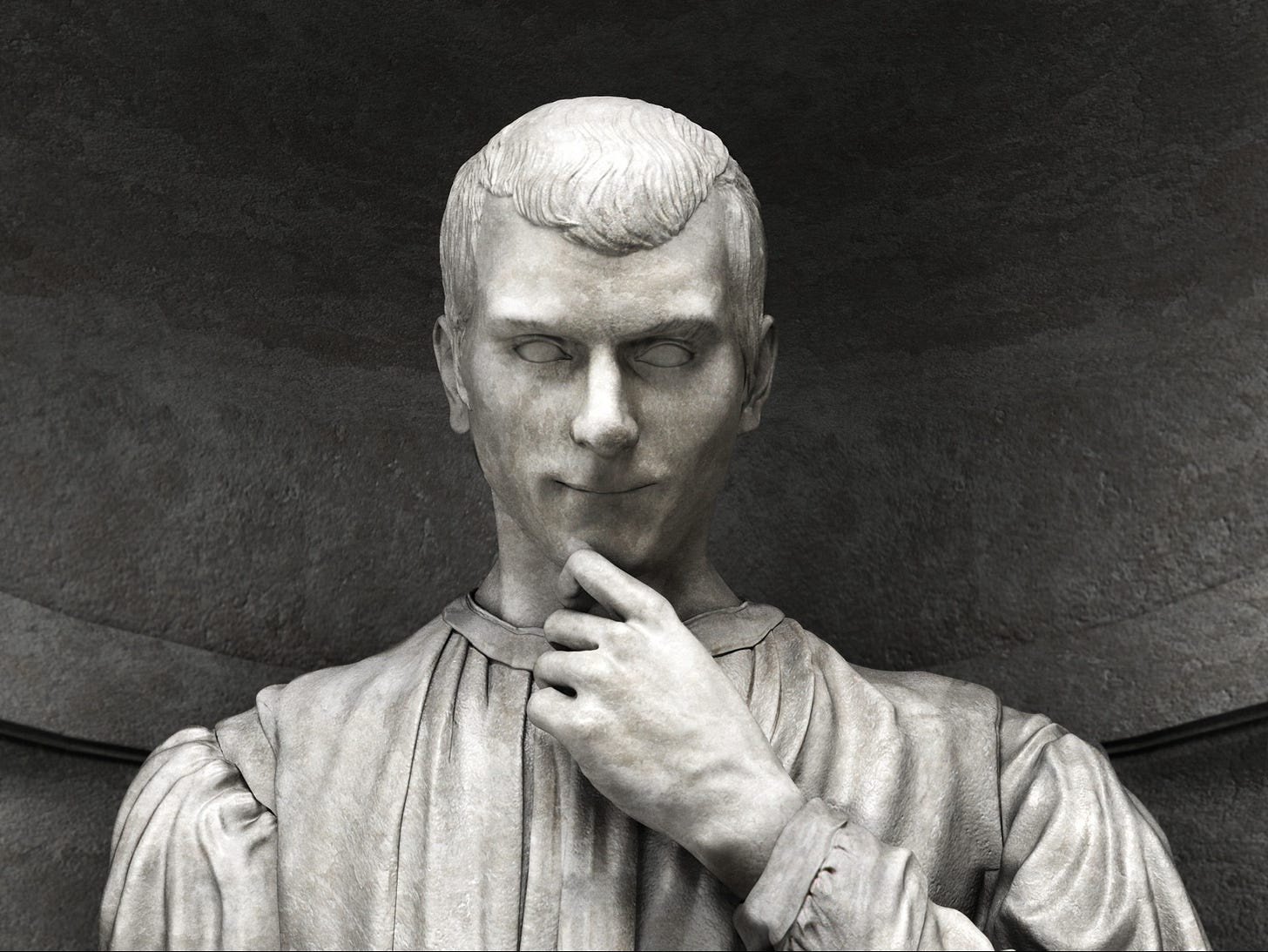From Machiavelli to Schmitt: Political Realism Is Reborn
Alexander Raynor examines how Belgian philosopher Antoine Dresse is renewing political realism for the challenges of the 21st century.
Who Is Antoine Dresse, aka Ego Non?
Born in 1996 in Liège, Belgium, Antoine Dresse pursued philosophical studies in Brussels. During his schooling, he studied English, German, and Russian. At 18, before beginning university, he spent several months in Heidelberg, Germany, and in Saint Petersburg, Russia, to perfect his linguistic knowledge.
Today, Antoine Dresse hosts the YouTube channel, with over 29,000 subscribers, titled Ego Non (“Even if everyone else, not me”) dedicated to political and moral philosophy, and regularly contributes to the publication Éléments. He is the author of several works, including La Guerre des civilisations: Introduction à l’œuvre de Feliks Koneczny, published in 2025. In this work, Dresse analyzes the political thought of Polish philosopher Feliks Koneczny and his theory of civilizations.
He also co-authored À la rencontre d'un cœur rebelle with Clotilde Venner, wife of the late Dominique Venner. Additionally, he contributed as a preface writer to Definitions: The Texts That Revolutionized Nonconformist Culture, written by Giorgio Locchi and recently translated and published by Arktos.
Dresse’s philosophical approach offers paths of intellectual liberation from moralizing dogmas. Far from praising cynicism, his work helps decode the often deceptive nature of revolutionary rhetoric that, despite seemingly generous presuppositions, frequently results in conflict.
Book Review: Political Realism: Principles & Assumptions by Antoine Dresse
Antoine Dresse’s Political Realism: Principles & Assumptions, translated and published in 2025 by Arktos Media in partnership with the Iliade Institute, stands as a profound and intellectually rigorous contribution to the discourse on political theory. At a time when the interplay between moral idealism and pragmatic governance is increasingly fraught, Dresse offers readers a clarifying and unapologetically realist framework for understanding the nature of politics. This work not only pays homage to the foundational thinkers of political realism — Machiavelli, Thomas Hobbes, and Carl Schmitt — but also carves a unique path through their legacies, offering a synthesis that is both scholarly and remarkably lucid.
From the very beginning, Dresse dismantles the comforting illusion that good ideas naturally yield good politics. The introduction is a tour de force that challenges the reader to separate the aspirational from the actual, urging a reconsideration of the fundamental relationship between morality, theory, and political action. Dresse’s precision in categorizing “ideas” — as moral imperatives, zeitgeists, and conceptual models — sets the tone for the entire work: careful, incisive, and committed to delineating political phenomena in their own right.
One of the book’s strongest virtues lies in its intellectual genealogy. Dresse revisits Niccolò Machiavelli not as the arch-cynic of popular imagination, but as a pioneering thinker of political technique — concerned with action, not abstraction. He portrays Machiavelli as an honest observer of human nature, who refused to conflate morality with statecraft. Dresse’s analysis of The Prince and the Discourses is especially illuminating in drawing attention to Machiavelli’s methodological realism: the idea that political success demands ruthless attention to circumstances and the adaptive application of historical insight.
In the chapter on Thomas Hobbes, Dresse discusses the foundational problem of obedience and authority. He contextualizes Hobbes’ political theory as a response to the existential threat posed by civil war, showing how Hobbes’ Leviathan offered a necessary re-centering of politics around security and stability. Rather than dismissing Hobbes’ social contract as naive or mechanistic, Dresse appreciates it as a powerful thought experiment — designed to establish the legitimacy of power in a world without moral consensus.
Carl Schmitt’s inclusion in the third major chapter is a timely choice. Schmitt’s work is handled with scholarly care, emphasizing his insistence on the autonomy of the political and the centrality of the friend/enemy distinction. Dresse does not shy away from the implications of Schmitt’s argument: that any depoliticization of the world — through law, economics, or morality — is inherently political in itself. His analysis gives due weight to Schmitt’s critique of liberalism, providing a sobering lens through which to view our post-political age.
What makes Political Realism particularly compelling is that it manages to be clear-eyed without descending into cynicism. Dresse does not seek to glorify manipulation or ruthlessness; instead, he argues for a dispassionate understanding of politics as its own domain, governed by its own logic. This is perhaps the most important corrective the book offers in an era saturated with ideological confusion: the insistence that conflating politics with morality, economics, or aesthetics does not ennoble any of them — it only obscures political reality and weakens the capacity for effective action.
The writing — translated masterfully by Roger Adwan — is clean, measured, and elegant. Despite its density of ideas, the book remains accessible to a broader readership interested in political philosophy, history, or contemporary affairs. The structure, which moves logically through a conceptual progression, is aided by helpful footnotes and references, making it a useful resource for both newcomers and seasoned theorists. Not to mention, the book is an easily digestible, short, enjoyable read.
Political Realism is a crucial intervention in modern political thought. It reintroduces realism not as a doctrine, but as a necessary disposition — an intellectual posture that recognizes the limits of human idealism and the persistent, often uncomfortable, truths of collective life. In doing so, Antoine Dresse does not merely restate the ideas of political realists past; he revitalizes them for a new generation facing the perils of depoliticization and ideological excess.
This book is an essential realpolitik primer for scholars, students, and political activists alike.






I recommend Antoine very much, met him and discussed several times, besides interviewed him before that a few years ago and it's been an absolute pleasure to count him in the community. His contribution just gets better and better overtime.
This book is incredible, very accessible too